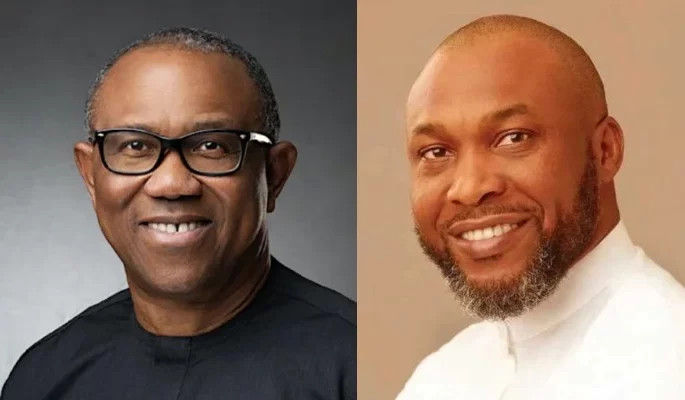Nigeria Doesn’t Deserve Good Man As President – Ex-Minister

Former Minister of Aviation and Chieftain of the Peoples Democratic Party (PDP), Osita Chidoka has said Nigeria doesn’t need a good man to be president.
He made the comment as a shade to the Labour Party Presidential candidate, Peter Obi during a virtual national dialogue on Thursday, January 26.
Special Adviser to Obi on Technology and Strategic Alliances, Valentine Ozigbo, had earlier described the LP candidate as a humble man.
He said; “When it comes to the personality of the candidates, we don’t emphasize character. You need someone who is humble, who you can engage.
“You need somebody who is compassionate, who cares about his country, fellow human beings; someone who fears God, who has conscience.
“There are some people who want to be empire on their own. Even as they are today, you cannot even reach them how much more when they become President”.
In reaction, Chidoka said the nation needs a leader who can strengthen institutions and not a good man.
“The challenge is when you build institutions around an individual, you are bound to have problems. The lesson of our past history was that Obasanjo was a strong active leader, and afterwards we had Yar’Adua.
“Yar’Adua was a honest and quiet man, but under whom not much moved because every move was susceptible to conversation and long debate. He was a good man, the first man to declare his assets publicly and also made his vice to declare assets publicly.
“The first man to reform the electoral system, acknowledging that the election that brought him to power was not good,” he explained.
The former Federal Road Safety Corps (FRSC) Corps Marshal went on to cite ex-German ruler Adolf Hitler as an example of how building institutions can stop the ‘business as usual syndrome’.
Chidoka said; “One of the good men that ruled the world was Adolf Hitler. When he was elected, the whole Germany said this is the man that we need to restore the German pride.
“We all know how it ended because the German people for the first time, instead of trusting in their institutions, trusted an individual.”


